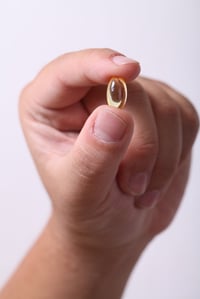MAKE A SPLASH
THIS SUMMER

Join Now For $0 Enrollment!
Learn MorePosted By: Morgan Statt /
May is National Osteoporosis Month, and the brittle bone condition isn’t just something to worry about when you reach your older years. Our bones play vital roles in our bodies. They give us the support our muscles need to exercise and move about, and they also protect our organs from being damaged.
The amount of bone tissue we have continues to increase until we’re about 30 years old. This peak bone mass then begins to decline as we go through the aging process, putting us at risk of osteoporosis and bone fractures later in life. Thankfully, there are ways we can work towards building up this bone tissue and preventing future bone loss.
Take note of these three things that may be adversely affecting your bone health, and make the necessary lifestyle changes that will keep you healthy and happy well into your golden years.
 You’re not getting enough exercise.
You’re not getting enough exercise.We all know exercise is great for our waistline and for keeping our vital organs like the heart and lungs healthy. But, it’s also imperative for bone health. Add weight-bearing exercises like running and jumping rope to your workout routine since these activities can increase bone density. Muscle-strengthening exercises like free weight and resistance-band training will also impact bone health by increasing bone density and improving coordination needed to prevent osteoporosis-related fractures.
 Your medication may be weakening your bones.
Your medication may be weakening your bones. If you have any concerns about bone health as it pertains to your prescription drugs, voice your concerns with your doctor first before you stop taking them since this can also cause certain side effects.
 You’re not eating healthy foods.
You’re not eating healthy foods. Did you know that Americans consume much more sodium than they should? Most organizations recommend no more than 2,300 mg of sodium per day yet most of us are eating more than 3,400 mg worth. Eating foods high in salt can not only spur on weight gain, but it can also cause a loss of calcium, the necessary mineral that builds strong bones.
Take a look at the foods you’re eating and consider ditching processed items for more wholesome options. Stock up on fruits, vegetables, fish or poultry, and whole grains for a well-rounded diet packed with the nutrients like calcium and magnesium that will build strong bones.
Osteoporosis doesn’t usually present any symptoms until someone suffers a fracture or takes a bone mineral density test. With this in mind, it’s time to adopt the habits that will keep you feeling healthy for years to come. Exercise regularly, eat well, and have discussions with your doctor this May and in the months to come.
Morgan Statt is a health & safety investigator who writes about a variety of topics including product safety, trending health news, and consumer issues. In her free time, she enjoys running outdoors and finding the next great hiking trail. Follow her on Twitter @morganstatt.
© 2026 Chicago Athletic Clubs. All Rights Reserved. Privacy PolicyEmployee Login
https://www.chicagoathleticclubs.com/
https://www.chicagoathleticclubs.com/services/personal-training/
0
5000
true